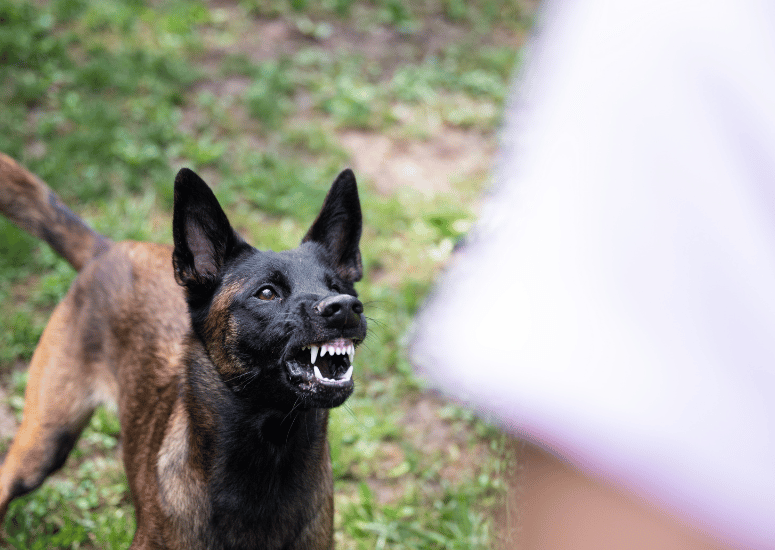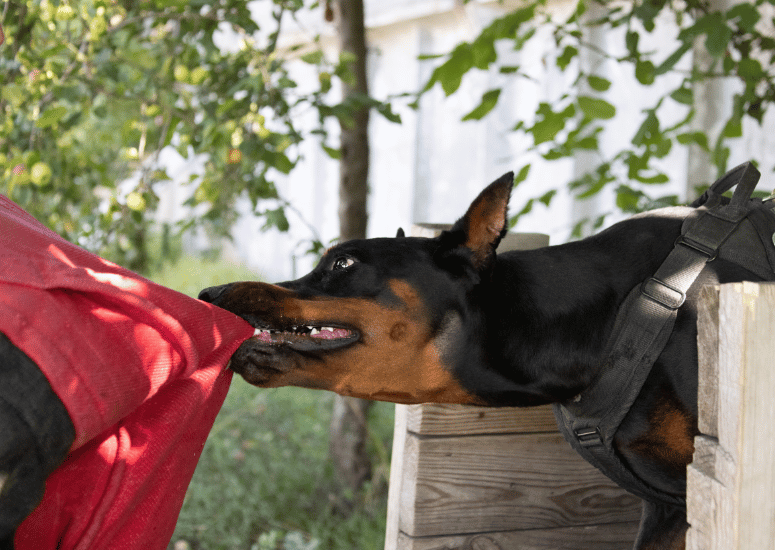TIPS: What to do if you get bitten by a dog
Being a fur parent comes with great responsibility. No matter how sweet or behaved your pet may be, it is important to be ready when they're distressed and feel pain or cranky because these may lead to them biting you or other people.
Earlier in the week, Alma Concepcion shared on Instagram that her dog Sniper, who she raised since she was a puppy, suddenly bit her while they were cuddling. After the incident, she's taking precautions to avoid bites such as not hugging the pooch.
"I'm sad [about] this change. But overall he is kind. He's potty trained, and [by] the looks of it, he is very sorry," she wrote.
Dr. Racky Velasquez of Mount Sinai Veterinary Practice told PhilSTAR L!fe that the reasons why a dog bites may vary. While some are naturally aggressive, others may bite if they are in a stressful situation.
“Some are threatened. Some are hormonal. Some are in pain, [and] some are abused. [Sometimes,] accident lang like natapakan, kakagatin ka niya if nasaktan siya,” he said.

Dr. Amado A. Flores III, emergency medicine specialist at Makati Medical Center noted the complications that may arise from the bite, even if your pet has complete vaccination.
“Dog and cat bites and scratches can transmit bacteria to the wound,” he said.
“Capnocytophaga and Pasteurella multocida from dog bites can lead to fever, diarrhea, swollen joints, and blisters or pus on the wound. The same symptoms have also been observed in Pasteurella multocida, Staphylococcus aureus, and Campylobacteriosis—bacteria found in the saliva of cats,” he explained.
In 2024, the Department of Health (DOH) recorded a total of 354 rabies cases from Jan. 1 to Sept. 14.
If you get bitten by a dog, here are the important steps to take to avoid complications.
What to do after a dog bite

Flores stressed that “time is of the essence” if you get bitten or scratched by a pet.
The doctors advise washing the wound with soap and running water for 10 to 15 minutes and then applying an antiseptic afterward. The treatment includes antibiotics or a tetanus shot.
In case the wound is swollen, doesn’t stop bleeding, and is so severe that it shows bones, muscles, and tendon, Flores III said that you must proceed to the emergency room immediately, or if you can’t, go to the hospital within eight hours after the bite.
“The longer you wait, the more you put your child at risk for infection and possible complications,” he said.
At the hospital, pet owners must be ready for any information about their pet, including its vaccination, rabies shots, as well as changes in behavior.
“Ideally, you’ll have to quarantine the animal to observe it for 10 days. Whether the dog or cat becomes ill or not, we strongly recommend a series of anti-rabies shots [for] your child,” he said.
According to Makati Medical Center, the post-exposure shots consist of four rabies vaccine doses given on days 0, 3, 7, and 14 (plus a fifth dose on Day 28 if the patient is immunocompromised), and a single dose of human rabies immune globulin (HRIG). The HRIG is given as soon as possible after exposure to provide immediate, passive immunity, while the vaccine stimulates the body to produce its own antibodies that protect against the rabies virus.
For the following exposures, a person bitten would typically receive two booster doses of the rabies vaccine, one on Day 0 and another on the third day.
Flores noted that rabies is a fatal disease but preventable with proper knowledge. One step that you can take to get yourself, your pet, and others protected is to keep your pet’s vaccination updated.
He also stressed proper etiquette when interacting with animals. “Teach your kids to respect dogs and cats, and all kinds of animals."
"Don’t bother them when they’re eating or sleeping, don’t run away or toward an unfamiliar dog or cat, never reach for a dog or cat from a gate or fence, and keep your child away from an animal once it starts to show signs of aggression,” he added.
Asked if dogs should be taken to the vet after a bite, Velasquez said to first "observe" your fur babies.


